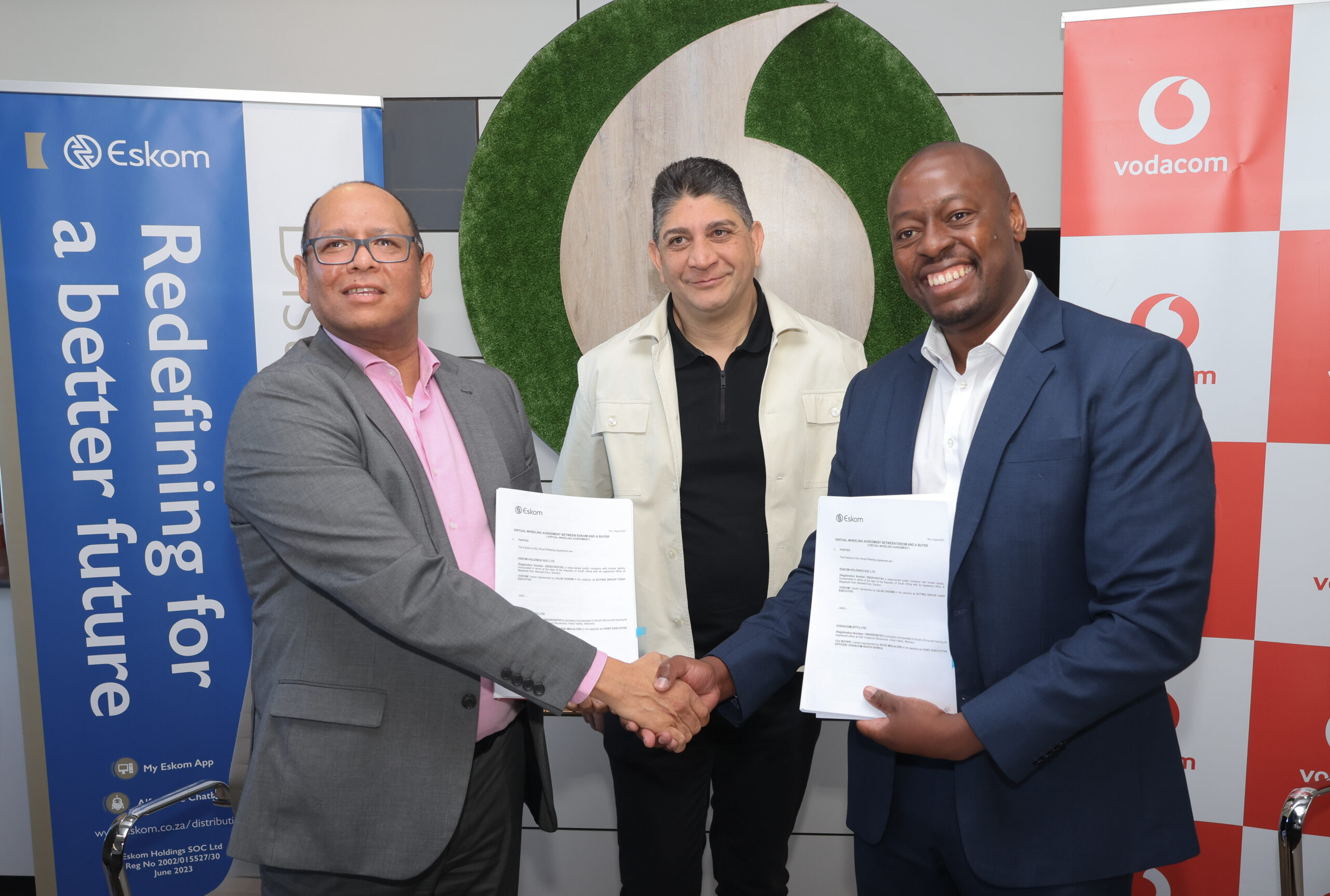- Following an almost year-long pilot, Vodacom and Eskom have signed a first-of-its-kind virtual wheeling agreement.
- The agreement will see Vodacom purchasing power from independent power producers and using it to power its business operations or sell it.
- This is a major step in addressing South Africa’s ongoing energy crisis.
The ongoing energy crisis means that Eskom has to get creative in its solutions and a new agreement with Vodacom showcases just that.
The utility and the network operator announced on Wednesday a “first-of-its-kind” virtual wheeling agreement. In traditional wheeling agreements, an independent power producer (IPP) will use the national grid to send power to a buyer. In this instance, the buyer doesn’t pay Eskom for the power. For example, a data centre operator could buy wind power from an IPP at the coast and use Eskom’s network to get that power to Isando.
Virtual wheeling removes much of the complexity that is inherent in traditional wheeling. This is accomplished through a digitisation of the processes through which IPPs can sell energy to customers.
Think of it like an online marketplace. IPPs are licensed by a third-party trader to generate energy. The third-party trader then sells this energy to customers.
In this new agreement, Vodacom is the third-party trader and it believes that this may be the silver bullet South Africa needs to address the energy crisis in earnest.

“Vodacom’s partnership with Eskom is transformational in that our virtual wheeling solution will enable South Africa’s private sector to participate in resolving the energy crisis which continues to impact the country’s economy. It also provides a blueprint for other South African corporates to adopt, as we pool our collective resources with the common objective of bringing an end to load shedding. The virtual wheeling solution has the potential to be fast-tracked, depending on the available licensed capacity of IPPs,” Vodacom Group chief executive officer, Shameel Joosub said in a press statement.
While Vodacom has tried to make use of renewable energy to meet its own needs, this has proven to be difficult. Rooves can only hold so many solar panels after all. The network operator also explored traditional wheeling agreements but with 15 000 distributed low-voltage sites linked to 168 municipalities, this proved too complex.
The virtual wheeling agreement follows an almost year-long pilot phase that involved rigorous testing.
The solution developed by Eskom and Vodacom is now accessible to the public and private sector. Vodacom will now also begin securing IPPs for the next phase of the project.
“Think of it like purchasing renewable energy certificates,” explains Vodacom South Africa CEO Sitho Mdlalose.
“But most importantly, it also has the added benefit of positively impacting the supply deficit currently being experienced and nurturing the growth of renewable energy production in South Africa. We estimate that this initial phase will move approximately 30% of Vodacom SA’s power demand onto renewable sources, a significant step towards our 2025 renewable energy ambitions. To make up the difference, we are working hard at exploring and developing additional solutions,” adds Mdlalose
Eskom has not made a statement about this agreement but that makes sense given that the utility is battling a multitude of breakdowns that have resulted in Stage 4 loadshedding being put into effect for the rest of Thursday.
#LoadsheddingUpdate
— Eskom Hld SOC Ltd (@Eskom_SA) August 31, 2023
Thursday, 31 August 2023:
Stage 4 loadshedding will be maintained until 16:00 today. This is due to the loss of 3 generation units last night, and the need to replenish the emergency generation reserves.
Eskom will publish another update this afternoon.
[Image – Myriams-Fotos from Pixabay]

